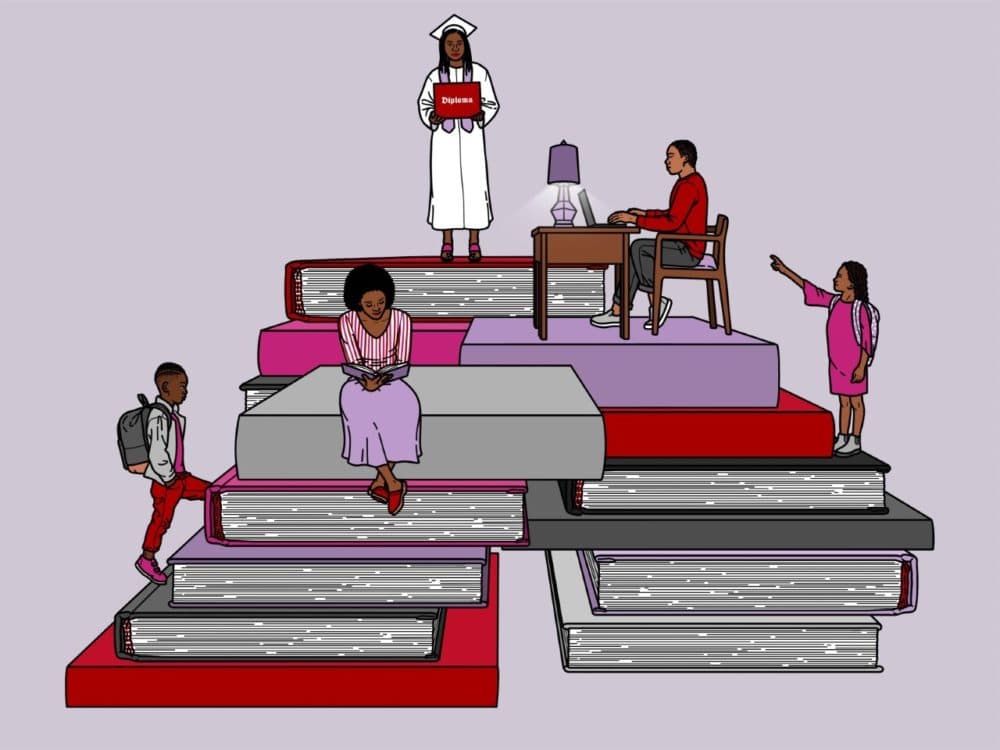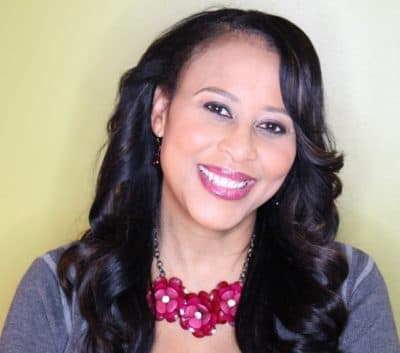Advertisement
Personal Finance Columnist Michelle Singletary Examines Race, Wealth Gap For Black Americans
Resume
Personal finance columnist Michelle Singletary just wrapped up a 10-part series on misconceptions about race and money.
"Sincerely, Michelle" featured open letters from Singletary, who is Black, to white readers. Singletary says writing The Washington Post series was one of the hardest things she’s ever done. Initially, she didn’t want to subject herself to racist comments.
“But after the death of George Floyd and the Black Lives Matter protests, I just finally thought I have to use my platform to say a lot of things that you think about Black Americans is incorrect,” she says, “and you're not putting it in context of the history and legacy of slavery.”

In one column, Singletary wrote about how her grandmother, Big Mama, didn't want to fill out financial aid forms for college because she didn't trust the system or invest because of the legacy of slavery.
Big Mama refused to say what she earned because she thought “the white man” would take her house, Singletary says. At the time, Singletary didn’t understand that her grandmother’s fears were based in reality: Big Mama lived through white mobs taking Black people’s property.
And Singletary had to “fight through” the fear her grandmother instilled around investing, which was rooted in financial institutions historically discriminating against Black Americans, she says.
Singletary shares her experiences with microaggressions in the series, such as one story about her husband playing with their kids in a pool at a resort. An elderly man said he was proud of her husband for playing with the children, she says.
The comment may seem like a compliment, but the man was implying that Black fathers are often absent in their kids’ lives. Her husband looked at her and mouthed “let it go,” she says.
People often take statistics out of context without looking at the history behind them, she says. In her research for the series, Singletary found a Centers for Disease Control and Prevention study that showed Black fathers are more likely to take care of their children in ways such as changing diapers and feeding meals than white fathers.
While waiting on the TSA PreCheck line at the airport, a man approached Singletary and her family to say they were in the wrong line. The man assumed that the only Black family in the line didn’t belong there, she says.
A lifetime of experiencing microaggressions makes a person feel like they’re not part of this country, she says. When traveling overseas as a student, Singletary was asked where she was from and responded by saying she was Black.
“Finally the person said, ‘No, Michelle, what country do you live in?’ ‘Oh,’ I said, ‘America.’ And they said, ‘Oh, you're an American.’ I said, ‘No, I'm Black,’ ” she says. “It wasn't till that point that I realized that I had never thought of myself as a Black American because America didn't treat me like I was an American.”
In another column, she chronicles sitting in the front row of a multiracial production of “Oklahoma” with her husband when a woman tapped her on the shoulder and asked how she got the seats. The woman assumed they knew someone in the play who gave them free tickets, Singletary says.
“Sometimes you don't say anything because you don't want to come off as the angry Black person,” she says. “But you can see I'm still seething because I wanted to say at that time, ‘You just made an assumption about me that invalidated my ability to save to pay for these tickets.’ ”
Singletary received some brutal responses from readers, such as that she’d be “living in a mud hut in Africa” if her ancestors weren’t brought to the U.S. She anticipated receiving racist comments, and her team decided to disable the comments on the column. But she still received “horrid” emails that left her in disbelief, she says.
An 81-year-old white woman who volunteers at the National Building Museum wrote to Singletary about how she used to tell Black fathers that it’s wonderful to see them playing with their children at a playground. The woman acknowledged that she didn’t say the same thing to white fathers and thanked Singletary for exposing this behavior as a microaggression.
The woman’s reflection speaks to why Singletary wrote the series.
“That email made me cry, too, but in a good way,” Singletary says. “Here is this woman who's saying, after all these years, I can learn something. And I was so appreciative of her reflecting on that.”
Singletary says she’s glad she broke her silence in this series — which helped people understand the experience of being Black in the U.S.
“We are not going to fix this race thing in America if we are not willing to have candid conversations about race and that we all can learn from,” she says. “And what I got out of this series is that a lot of people do want to listen, and they do want to understand.”
Marcelle Hutchins produced and edited this interview for broadcast with Jill Ryan. Allison Hagan adapted it for the web.
This segment aired on December 22, 2020.

